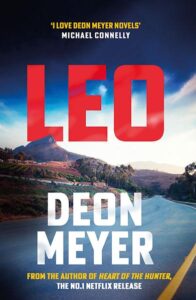 I remember writing my first letter to author François Bloemhof in 2000. As a young author, I was delighted when he actually answered—and the feeling has never quite worn off when writing to other authors. Writing to another author grows your connections and knowledge whether thanking them, admiring them, or just exchanging like-minded ideas. Here’s why you should be regularly communicating to other writers.
I remember writing my first letter to author François Bloemhof in 2000. As a young author, I was delighted when he actually answered—and the feeling has never quite worn off when writing to other authors. Writing to another author grows your connections and knowledge whether thanking them, admiring them, or just exchanging like-minded ideas. Here’s why you should be regularly communicating to other writers.
Ask for Unique Writing Advice
Writing to authors you enjoy or admire could be the best way to answer your own, burning writing questions.
I contacted award-winning author Jeffery Deaver (The Bone Collector, The Blue Nowhere) in 2016 asking for some writing advice. I was so impressed that I used his answer in a piece later published in ReFiction.
Best-selling author Deon Meyer revealed to me how he created fictional detective Benny Griessel for this article. If there’s something you want to know from a fellow writer or author, visit their website (or publisher), find the email address, and ask. Regardless how famous, they just might respond.
On Paper Praise & Reviews
François Bloemhof was the first author I asked to review my short story “Bully.”
I’ve always been proud of having an award-winning author’s thoughts on my first fiction publication: “I like this story – even if it’s not the type of tale that begs you to like it. Like its main character, the story is stubborn and gets to the point.”
Fellow authors can provide praise, reviews, and potential beta-reading. They can validate you in a way you don’t get from the average reader. However, connect with them first to ask if they would be interested in reading.
Editing, Proofreading, & Writing Resources
Letters to other authors can share writing resources, talk about emerging work, or point you in the direction of useful editing or proofreading jobs. You should do the same for them, and they are likely to keep you in mind later.
I’ve edited a handful of stories for Hermione Le Roux-Ellis. Someone introduced us as fellow authors, and upon talking, I learned she held a manuscript waiting to be edited.
Ask other authors about their day, but also remember to ask if you can do anything for them. They’ll remember the generosity.
Submission Calls and Guidelines
When spotting a good, fresh submission call or writing market, I like sharing it with some of the authors I know. My good manners coaxes them to keep an eye out for writing opportunities in turn.
Hermione Le Roux-Ellis contacted me with a fresh call for the future collection Just LGBTQ+. I not only submitted the perfect short story to them, but I also featured their submission call in a news feature I penned.
Correspond and pass forward good opportunities. They’ll likely do so in kind.
Sometimes… You’re the Author People Write To
Sometimes you’re the author people write to. You might be someone whose writing they’ve enjoyed, admired, or absolutely hated. Answer incoming correspondence from comments or websites with tact and care: you’re representing your name and brand by stepping into correspondence.
How would you like to be answered when writing to someone like King or Deaver? Imagine this when answering your own messages or comments. Oh, and be sure to reply. You just never know the door you might be opening, or the following you might be building.
Correspondence is Networking
I first wrote to Raven Digitalis complimenting his book Goth Craft, and since then we’ve been writing letters back and forth for years.
When he needed an assistant to seek promotion opportunities for his new fiction collection Black Magick, I opened the dialogue about potential venues. Correspondence starting with that very first letter, made this later, quite powerful thing possible for my own career.
Writing to other authors can also point you in the direction of new publishers and publications. I discovered Crystal Lake Publishing through writer friends, and later contracted to proofread a handful of their releases.
Correspondence is networking with lots of potential, and you could have a lot to gain by writing to authors you enjoy, admire, or just discovered.
About the Author: Alex J. Coyne is a journalist, author, and proofreader. He has written for a variety of publications and websites, with a radar calibrated for gothic, gonzo, and the weird. Sometimes, he co-writes with others.
Leave a Reply